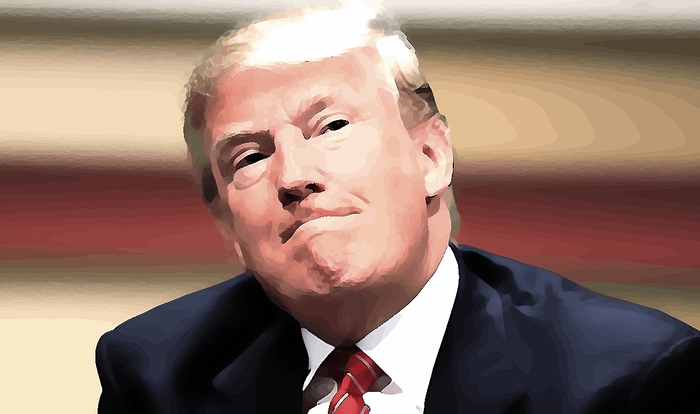
Donald Trump's first week as president has been a bad one for free trade. He suggested he would propose a new 20 percent tariff for imports from Mexico. He formally withdrew from the Trans-Pacific Partnership trade deal and said he would start renegotiating the North American Free Trade Agreement.
Then there's the shoe that didn't drop: He met with British Prime Minister Theresa May on Friday, and they emerged together to announce … well, not much.
There's an appetite on both sides for new negotiations for a U.S.-U.K. trade agreement, given the U.K.'s imminent departure from the European Union. Earlier this month, Trump told the Times of London that he would work hard to get such a deal done "quickly and properly." May has promised her own citizens that a U.S.-U.K. trade agreement would be the key to British prosperity after Brexit.
And yet at a joint appearance at the White House on Friday, capping the first visit of a foreign leader to Trump's White House, both Trump and May studiously avoided saying they would begin these negotiations. The closest either leader came to talking about the bilateral agreement was when May said the two discussed "laying the groundwork" for such a deal.
Why so cagey? Because the U.K. is not yet free to begin negotiations. Under Article 50 of the EU treaty, the U.K. is not allowed to even start trade negotiations with another country until it has formally left the union. Even though the Brexit vote happened more than six months ago, the U.K. has yet to formally announce its intention to withdraw from the union.
"The precise moment when the United Kingdom will be free to negotiate a separate trade deal will only be known when the Article 50 negotiations are concluded," the EU ambassador to Washington, David O'Sullivan, told me in an interview Thursday. Article 50 foresees a period of two years to negotiate the exit of any union member.
But even that two-year period is optimistic. O'Sullivan said this could take even longer if the U.K. negotiated a plan to remain in the customs union for the E.U. or sought to keep certain agreements in place for a longer period of transition.
Add to this the potential for delays after the U.K. has left the bloc. Because the U.K.'s current status inside the World Trade Organization is based on its membership in the EU, it will have to renegotiate its schedule of tariffs with that organization. Dan Ikenson, the director of the CATO Institute's Center for Trade Policy Studies, told me that the EU, like any other member of the organization, would have a veto on any new agreement for the U.K.'s membership. So May is wise to not get ahead of what the EU allows; if the union feels slighted by the U.K. now, there could be ramifications on all of its trade relationships for years to come. "The U.K. needs to be mindful of what the EU might do out of spite," Ikenson said.
Finally, trade deals almost always take longer to finish than the parties initially had hoped. Both Ikenson and O'Sullivan said a simple agreement between the U.S. and the U.K. on tariffs would take less time to negotiate. But if the trade agreement covers things like financial services, e-commerce and elaborate supply chains, it will take longer. "For most trade agreements you are not dealing with border barriers anymore," Ikenson said. "You are dealing with domestic regulations. You are talking about reforming domestic laws and regulations, and that process takes a long time."
For now, May has been walking a fine line. On Thursday in her address to Republican lawmakers in Philadelphia, she said she looked forward to moving forward with a U.S.-U.K. trade deal in time. But she also hinted obliquely at British obligations while it remains part of the EU. "For as long as we remain members we will continue to play our full part," she said. "Just as we will continue to cooperate on security, foreign policy and trade once we have left." May's deputy, Chancellor of the Exchequer Philip Hammond, has sent a similar message. He tweeted Thursday that the U.K. will remain an "engaged E.U. member until we leave."
Trump seems to have received the message. On Friday he spoke in generalities about the importance of ties between America and its former colonial master. But he didn't say he would start negotiations for a new trade agreement with the U.K. He didn't announce a deal. That showed restraint and savvy. Unlike his pledges to make Mexico pay for a border wall or to end radical Islamic terrorism, when it comes to the "special relationship," Trump so far is not making promises he can't keep.
Comment by clicking here.
Eli Lake is a Bloomberg View columnist who writes about politics and foreign affairs. He was previously the senior national security correspondent for the Daily Beast. Lake also covered national security and intelligence for the Washington Times, the New York Sun and UPI, and was a contributing editor at the New Republic.


 Contact The Editor
Contact The Editor
 Articles By This Author
Articles By This Author